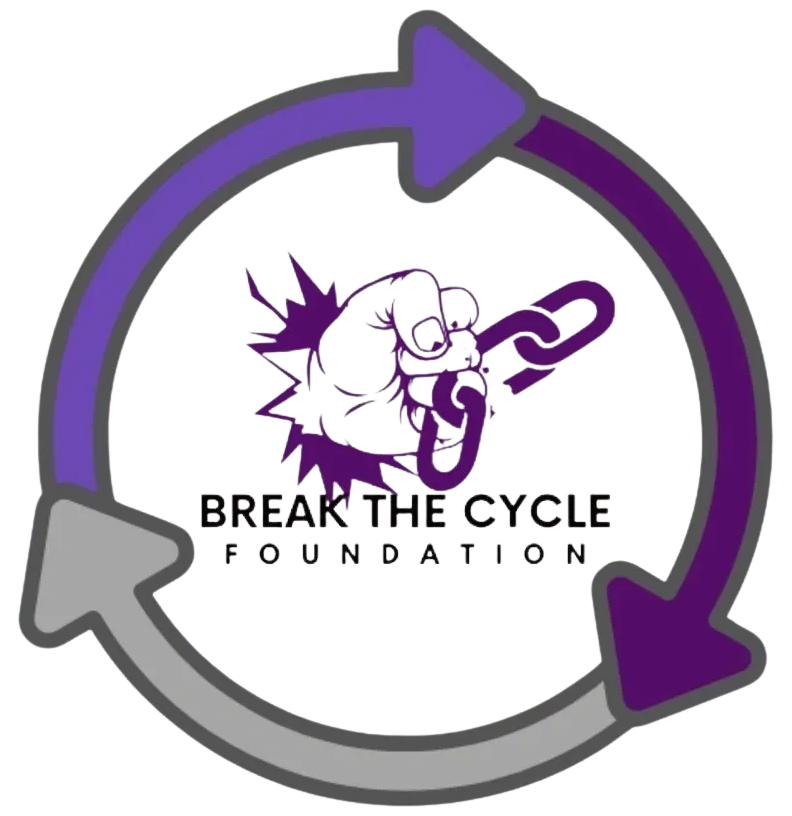The Importance of Addiction Treatment
Addiction treatment is crucial for those struggling with substance use disorders. At Break The Cycle Foundation, we focus on providing comprehensive treatment options to meet the diverse needs of our clients. Two fundamental aspects of our approach are therapy and counseling, which play an essential role in the recovery journey.
Therapy and Counseling in Recovery
Therapy and counseling form the backbone of structured addiction treatment, addressing both the psychological and behavioral aspects of substance abuse. Even if someone is not initially motivated to seek therapy, it can help dismantle their resistance to treatment, eventually fostering a willingness to recover Eudaimonia Homes. Recognizing the importance of these interventions is key, as highlighted by the National Institute on Drug Abuse (NIDA), which considers behavioral therapy and counseling as vital components of the recovery process.
Various therapeutic approaches, such as cognitive-behavioral therapy (CBT), motivational interviewing, and acceptance and commitment therapy, are commonly employed to help individuals navigate the complexities of addiction. Each approach provides unique benefits, aiding in the development of effective coping strategies and fostering long-term sobriety.
For a more detailed understanding of individual counseling in addiction treatment, you can visit our section on individual counseling for addiction: what to expect.
Behavioral Therapies in Addiction Treatment
Behavioral therapies are a cornerstone of addiction treatment at Break The Cycle Foundation. These therapies aim to modify drug-related behaviors and cultivate healthier coping mechanisms. Cognitive-behavioral therapy (CBT) is one of the most widely used forms of behavioral therapy, focusing on identifying and changing harmful thinking patterns and behaviors (NCBI).
Other effective behavioral therapies include:
- Motivational Interviewing: Encourages individuals to explore their ambivalence about substance use and find their motivation for change.
- Contingency Management: Uses positive reinforcement to promote sobriety by providing tangible rewards for maintaining abstinence.
- Acceptance and Commitment Therapy (ACT): Helps individuals accept their feelings and thoughts rather than fighting them, while committing to behavior change.
Behavioral therapies not only assist in breaking the cycle of addiction but also play a vital role in preventing relapse. We offer various structured counseling programs, one of which includes relapse prevention techniques. For more on relapse prevention, visit our page on relapse prevention planning: core elements to include.
| Therapeutic Approach | Key Focus | Outcome |
|---|---|---|
| Cognitive Behavioral Therapy (CBT) | Modifying harmful behaviors and thoughts | Improved coping strategies |
| Motivational Interviewing | Building motivation for change | Increased readiness for recovery |
| Contingency Management | Positive reinforcement | Enhanced abstinence rates |
| Acceptance and Commitment Therapy (ACT) | Accepting feelings while committing to change | Reduced psychological resistance |
By incorporating various behavioral therapies into our structured addiction treatment programs, we ensure that our clients receive comprehensive care tailored to their specific needs. Learn more about the specific therapeutic approaches we utilize by visiting what is substance use disorder and how is it treated.
Specific Therapeutic Approaches
Engaging in structured counseling can significantly assist individuals on their journey to break the cycle of addiction. We employ several specific therapeutic approaches to provide tailored support to those in need.
Cognitive Behavioral Therapy (CBT)
Cognitive Behavioral Therapy (CBT) is a cornerstone of addiction treatment, focusing on altering harmful thinking patterns to address behaviors that contribute to substance use. By teaching individuals to recognize and reevaluate these patterns objectively, CBT helps clients develop problem-solving skills, enhance self-confidence, and understand the behaviors of others (Eudaimonia Homes).
| Aim of CBT | Specific Techniques |
|---|---|
| Change harmful thinking | Recognize and reevaluate thinking patterns |
| Improve problem-solving | Apply strategies to handle difficult situations |
| Build self-confidence | Develop a sense of self-efficacy |
| Understand behaviors | Gain insights into the actions and motives of others |
For a detailed overview of what to expect from individual counseling sessions involving CBT, visit our guide on individual counseling for addiction: what to expect.
Contingency Management
Contingency Management (CM) is a behavioral therapy that uses positive reinforcement to encourage sobriety and other positive behaviors. Individuals are rewarded for making beneficial changes, which helps to reinforce these behaviors and reduce substance use (Eudaimonia Homes).
| CM Elements | Description |
|---|---|
| Positive Reinforcement | Rewards for positive behavior changes |
| Frequency of Sobriety | Increased through incentivized programs |
| Behavioral Target | Encouraged through external motivation |
This approach can be particularly effective when integrated into structured counseling programs. To learn more about how group therapy settings support positive behavior changes, explore our article on group therapy for substance use: how it supports recovery.
Rational Emotive Behavior Therapy (REBT)
Rational Emotive Behavior Therapy (REBT) focuses on identifying and changing negative thought patterns and irrational beliefs that contribute to harmful behaviors. By replacing these faulty beliefs with logical ones, REBT addresses emotional distress and self-defeating behaviors (Eudaimonia Homes).
| Aim of REBT | Specific Techniques |
|---|---|
| Identify negative thoughts | Recognize and understand self-defeating beliefs |
| Replace faulty beliefs | Introduce logical and constructive thoughts |
| Emotional Adjustment | Manage emotional distress through rational thinking |
Implementing REBT within our structured counseling programs provides clients the tools they need to challenge and change their perceptions, leading to a healthier recovery journey. For more information on the importance of support networks in maintaining these changes, read our piece on the role of support networks.
Structured counseling approaches like CBT, Contingency Management, and REBT are integral to effective addiction treatment at Break The Cycle Foundation. These therapies, combined with medication-assisted treatment and robust support systems, form the foundation of our comprehensive care plans. For further guidance on relapse prevention and structured counseling benefits, visit our article on relapse prevention planning: core elements to include.
Family and Group Therapy
In the landscape of addiction treatment, family and group therapy serves as essential pillars in fostering recovery and breaking the cycle of addiction. Here we explore the critical roles of family therapy, couples therapy, and peer support programs.
Family Therapy in Addiction Treatment
Family therapy is integral to addressing an individual’s substance abuse problems and co-occurring issues within the family unit (Eudaimonia Homes). This therapeutic approach involves all affected individuals, focusing on improving relationships, addressing stress, enabling behaviors, and communication problems to encourage continued abstinence. The goal is to rebuild the family’s foundation, providing an environment conducive to recovery.
Benefits of Family Therapy:
- Improved communication within the family
- Identification and correction of enabling behaviors
- Enhanced understanding of addiction and its effects on the family
- Development of supportive, non-judgmental relationships
For more insights on how structured counseling can help break the cycle of addiction, refer to our article on what is substance use disorder and how is it treated.
Couples Therapy
Couples therapy is another form of family therapy that plays a crucial role in addiction treatment. It specifically addresses the dynamics between partners that may contribute to substance use and works to strengthen the relationship as a whole. By engaging both partners in the therapeutic process, couples therapy aims to:
- Enhance communication and trust
- Address underlying relational issues
- Develop strategies for managing stress and conflict
- Promote shared goals in the recovery journey
Peer Support Programs
Peer support programs such as Alcoholics Anonymous (AA), Narcotics Anonymous (NA), and SMART Recovery provide essential guidance, mentorship, and a sense of community for individuals in recovery (NCBI). Peer support groups are pivotal during early recovery stages and continue to offer support as individuals transition through different stages of their journey.
Types of Peer Support Programs:
- Alcoholics Anonymous (AA): Focuses on the 12-step program and offers a sponsor system for guidance
- Narcotics Anonymous (NA): Similar to AA but specifically for individuals recovering from narcotics
- SMART Recovery: Utilizes cognitive-behavioral techniques to promote self-empowerment and independence
- Peer Recovery Coaching: Offers one-on-one mentorship from individuals who have successfully navigated their own recovery
Advantages of Peer Support Programs:
| Benefit | Description |
|---|---|
| Emotional sustenance | Provides a safe environment for sharing feelings and experiences |
| Practical guidance | Offers tools for managing thinking, emotions, and interpersonal skills |
| Accountability | Encourages accountability through peer feedback and connections |
| Community | Connects individuals with others undergoing similar experiences |
Peer support programs have shown promise in preventing relapses, although the evidence for their efficacy is still evolving. For more detailed dynamics and benefits, check out our article on group therapy for substance use: how it supports recovery.
By integrating these therapeutic approaches, we can provide comprehensive care that addresses not only the individual’s needs but also the broader social and relational factors influencing their recovery. Structured counseling indeed helps to break the cycle of addiction, paving the way for a healthier, more supportive future.
Medication-Assisted Treatment
Medication-assisted treatment (MAT) plays a crucial role in our comprehensive approach to breaking the cycle of addiction. It involves the use of medications coupled with counseling and behavioral therapies, providing a holistic treatment solution. Understanding the different facets of MAT can help us develop a more effective and personalized recovery plan.
Methadone Maintenance
Methadone maintenance is designed to treat narcotic analgesic dependence, particularly in cases involving opioids such as heroin. Extensive studies and clinical trials validate its safety and effectiveness (NCBI Bookshelf). Methadone works by stabilizing psychological functioning and reducing illicit drug consumption, criminal activity, and improving productivity among clients.
Research shows that clients in methadone maintenance programs significantly decrease drug and criminal activity, while marking improvements in employment status and social productivity. One of the key factors influencing the success of methadone maintenance is the methadone dosage policy. Programs that administer higher average doses (60-100 mg/day) have superior client retention rates and success in controlling illicit drug use (NCBI Bookshelf). For more information on whether methadone maintenance is suitable for you, our article on how to know if methadone maintenance is right for you is highly informative.
| Aspect | Effectiveness |
|---|---|
| Higher Dose (60-100 mg/day) | Better client retention and control over illicit drug consumption |
| Lower Dose | Lesser success in controlling illicit drug consumption |
| Overall Impact | Reduced criminal activity, improved employment status, and social productivity |
Medications for Addiction Recovery
MAT encompasses various medications, each targeting different aspects of substance use disorder. These medications include:
- Buprenorphine: Used for opioid dependency, it reduces withdrawal symptoms and cravings without producing the ‘high’ associated with opioid misuse.
- Naltrexone: Effective for both opioid and alcohol dependency, it works by blocking the euphoric effects of alcohol and opioids.
- Disulfiram (Antabuse): Used for alcohol dependency, it triggers unpleasant effects when alcohol is consumed, deterring individuals from drinking.
Each medication has a unique role in supporting recovery and must be prescribed and monitored by a healthcare professional. Additional information on these medications can be found in our article on what is substance use disorder and how is it treated.
Monitoring Techniques for Relapse Prevention
An integral part of MAT is the continuous monitoring to prevent relapse. Various techniques are employed to ensure adherence to the treatment plan and early detection of potential relapse triggers:
- Regular Drug Testing: Scheduled and random drug tests help in tracking progress and identifying any slip-ups.
- Behavioral Monitoring: Observing changes in behavior and emotional state can provide early warning signs of a relapse risk.
- Counselor Check-ins: Frequent sessions with counselors help clients stay on track and address any emerging issues.
- Support Groups: Peer support programs and group therapy for substance use provide an avenue for sharing experiences, fostering a sense of accountability, and receiving encouragement.
For a comprehensive guide on developing a relapse prevention plan, see our article on relapse prevention planning: core elements to include.
By integrating medication-assisted treatment with structured counseling and ongoing monitoring, we can provide a robust foundation for sustained recovery. This multifaceted approach helps us break the cycle of addiction, guiding clients towards a healthier, more productive life. Our goal is to ensure that every individual receiving treatment benefits from evidence-based practices and a supportive treatment environment.
Structured Counseling for Addiction Recovery
At Break The Cycle Foundation, we understand the pivotal role that structured counseling plays in breaking the cycle of addiction. Through various counseling approaches, we ensure that individuals receive the support and guidance needed for sustainable recovery.
Benefits of Structure in Recovery
Structured counseling provides a framework for individuals, fostering a sense of stability and routine. This is essential for those in recovery as it helps reinstate normalcy, reduces chaos, and builds responsible behavior patterns. Among the top benefits of structured counseling are:
- Enhances accountability and responsibility.
- Provides clear goals and milestones.
- Reduces the risk of relapse.
- Encourages consistent progress tracking.
Psychoeducational and Skills Development Groups
Psychoeducational groups in substance abuse treatment expand awareness about the behavioral, medical, and psychological consequences of substance misuse. These groups aim to:
- Motivate clients to enter recovery-ready stages.
- Counteract denial about substance abuse.
- Establish and maintain abstinence.
- Provide essential recovery process information (NCBI).
Skills development groups cultivate the necessary skills for individuals to achieve and sustain abstinence. Topics covered include:
- Managing triggers.
- Coping with urges.
- Anger management.
- Problem-solving.
| Group Type | Key Focus |
|---|---|
| Psychoeducational | Awareness, motivation, abstinence, recovery information |
| Skills Development | Refusal skills, managing triggers, anger management |
For more on what to expect in these sessions, visit individual counseling for addiction: what to expect.
Cognitive-Behavioral Groups and Support Groups
Cognitive-behavioral groups (CBT) aim to change learned behavior by altering thought patterns, beliefs, and perceptions. These groups assist clients in:
- Developing social support networks.
- Changing cognitive processes.
- Monitoring feelings and behaviors related to drug use (NCBI).
Support groups offer essential emotional support, a safe environment, and practical guidance. These groups primarily focus on:
- Improving self-esteem and self-confidence.
- Providing accountability through peer feedback.
- Managing day-to-day living and interpersonal skills.
| Group Type | Key Focus |
|---|---|
| Cognitive-Behavioral | Social support, cognitive process changes, monitoring behaviors |
| Support Groups | Emotional sustenance, practical guidance, accountability |
To dive deeper into the benefits of these group settings, explore group therapy for substance use: how it supports recovery.
At Break The Cycle Foundation, we are committed to providing the best-structured counseling programs to support our clients on their journey to recovery. Discover more about setting recovery goals with your care team by visiting setting realistic recovery goals with your care team.
Building a Support System
The Role of Support Networks
A vital aspect of how structured counseling helps break the cycle of addiction is the presence of a robust support network. As highlighted by SAMHSA, a supportive network includes cheerleaders, listeners, and helpers. This network plays a crucial role in the recovery journey, contributing to an individual’s physical health, living conditions, personal fulfillment, and community relationships (Addictions.com).
Establishing and maintaining a solid support system during the recovery process is essential for long-term success in sobriety. This system helps individuals cope with triggers, enhance overall well-being, and empower them throughout the various stages of recovery. Here are some elements included in a supportive network:
- Family Members: Providing emotional support and understanding.
- Friends: Offering companionship and encouragement.
- Healthcare Professionals: Guiding treatment and recovery plans.
- Community Resources: Facilitating access to necessary services.
To learn more about the importance of having a support system, read our article on group therapy for substance use: how it supports recovery.
Engaging in Recovery Support Groups
Recovery support groups, such as Narcotics Anonymous (NA) and Alcoholics Anonymous (AA), provide valuable resources and connections. These groups often offer phone lists with local crisis resources, peer mentors (sponsors), and a supportive community of individuals undergoing similar experiences. Engaging in these support groups can be an integral part of a well-rounded relapse prevention plan.
| Support Group | Purpose | Key Features |
|---|---|---|
| Narcotics Anonymous (NA) | Support for individuals recovering from drug addiction | Peer support, local crisis resources, sponsors |
| Alcoholics Anonymous (AA) | Support for individuals recovering from alcoholism | Peer support, community meetings, sponsors |
Participation in such groups can provide:
- Peer Support: Encouragement from others with similar experiences.
- Accountability: Regular meetings and check-ins to stay on track.
- Resource Sharing: Information on local support services.
For further details, refer to our guide on relapse prevention planning: core elements to include.
Therapeutic Alliances in Treatment
Building a positive therapeutic alliance is crucial in providing effective, person-centered care for clients with co-occurring disorders (CODs). Clients often face stigma, mistrust, and low treatment engagement (NCBI Bookshelf). At Break The Cycle Foundation, we prioritize empathetic support, motivational enhancement, and skill-building strategies to enhance our clients’ success and long-term recovery. This is especially important for individuals dealing with complex mental disorders like major depressive disorder, anxiety disorders, posttraumatic stress disorder, and serious mental illness.
A strong therapeutic alliance involves:
- Empathetic Support: Understanding and compassion from the therapist.
- Motivational Enhancement: Encouraging clients to stay committed to their recovery goals.
- Skill-Building: Equipping clients with tools to manage their addictions and associated behaviors.
| Therapeutic Technique | Benefits |
|---|---|
| Empathetic Support | Enhances trust and openness |
| Motivational Enhancement | Promotes engagement in treatment |
| Skill-Building | Provides tools for managing addiction and mental health |
For more insights into what to expect in individual counseling, explore our article on individual counseling for addiction: what to expect.
In conclusion, building a reliable support system is paramount in the journey to recovery. A combination of support networks, engagement in recovery groups, and strong therapeutic alliances can help break the cycle of addiction and pave the way to lasting sobriety.







